
Giovanni Dicanio | Duration: 2h 33 m | Video: H264 1280x720 | Audio: AAC 44,1 kHz 2ch | 318 MB | Language: English
C++14 and C++17 added many new features to the C++ language. This course will teach you practical features introduced in C++14 and C++17, that you will be able to use to write clearer, simpler, and higher-quality modern C++ code.
After the C++11 "revolution," several other features were added by the C++14 and C++17 standards. While C++11 was a massive improvement over the previous C++98/03, C++14 and C++17 are kind of more incremental improvements; nonetheless, interesting, powerful and useful features were added in these recent C++ standards. In this course, Practical C++14 and C++17 Features, you'll learn many practical features added in the C++14 and C++17 standards, assuming you have only a basic knowledge of C++11, like the one you can get watching the "C++11 from Scratch" course; any advanced C++11 concepts will be explained here on a need-to-know basis. Among the many topics discussed in this course, you'll start learning small but nice features, like digit separators. Then you'll explore more substantial features, like polymorphic lambdas (the course will also introduce basic lambdas as well, so you're not left in the dark if you don't know C++11 lambdas), and relaxed constexpr functions. You'll also learn about improvements to the C++ standard library, like the new standard-defined suffixes for the Chrono library (which will be introduced as well), or std::make_unique in combination with the unique_ptr smart pointer (that'll be introduced here as well). Finally, you'll explore new practical C++17 features, ranging from nested namespaces, to "constexpr if" and structured bindings. The features will be discussed using both slides, and with concrete C++ demo code, including showing some subtle bugs, and how to fix them. After completing this course, you'll be able to write simpler, clearer, more efficient and higher-quality modern C++ code, applying the features discussed in this course in your own C++ codebases. This course targets developers who are already familiar with basic C++11, and want to extend their knowledge to practical C++ features introduced in C++14 and in C++17. If you need a beginner-oriented introduction to C++11, you can watch the "C++11 from Scratch" course.
Homepage



![S.T.A.L.K.E.R. 2 / STALKER 2: Heart of Chornobyl - Ultimate Edition (2024) [+UPDATE 23.12.2024 - v1.1.3] ElAmigos / Polska wersja językowa](https://i.postimg.cc/Zqd8RWGY/UZG8PBE.jpg)
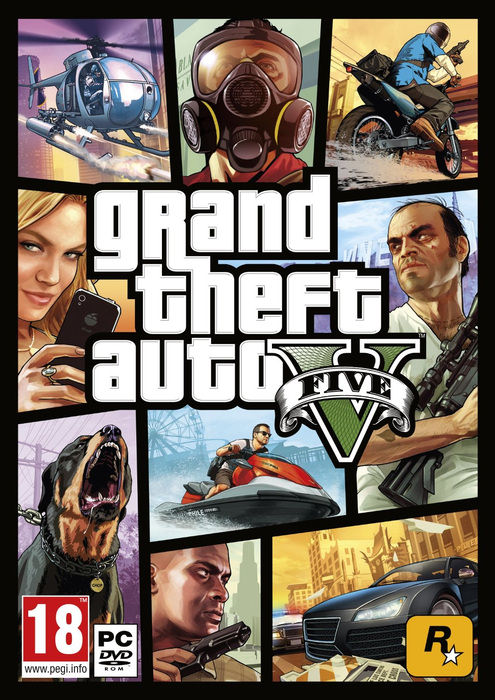
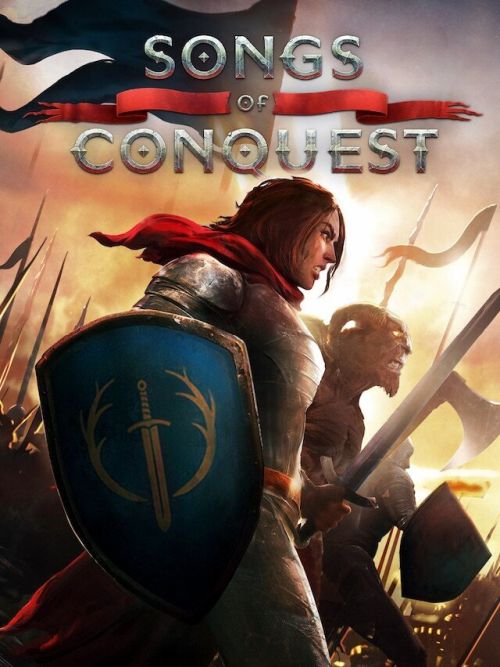

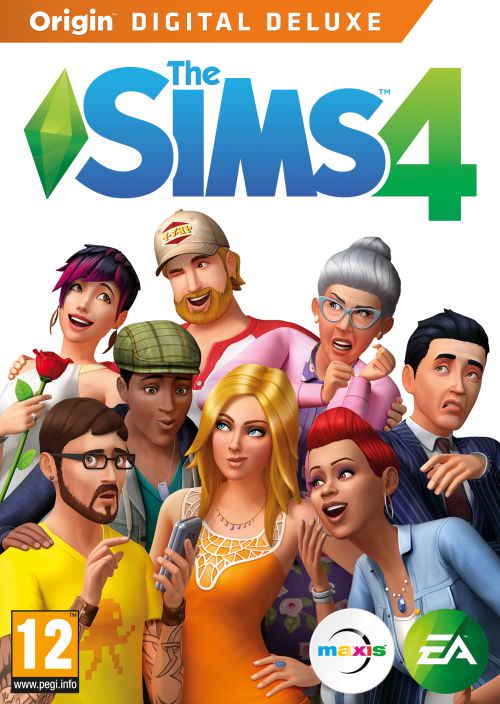




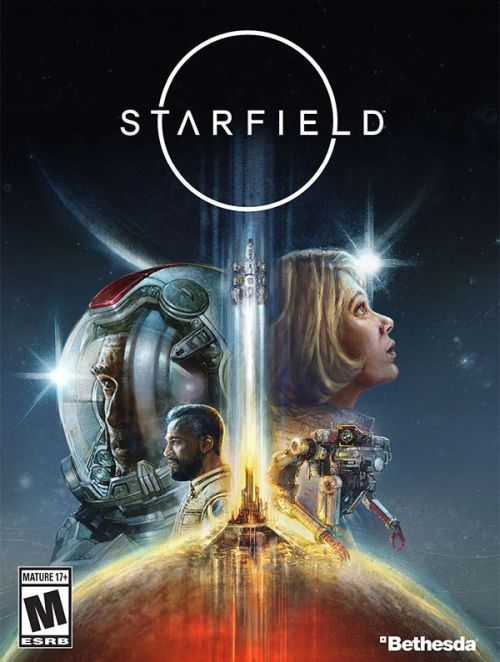
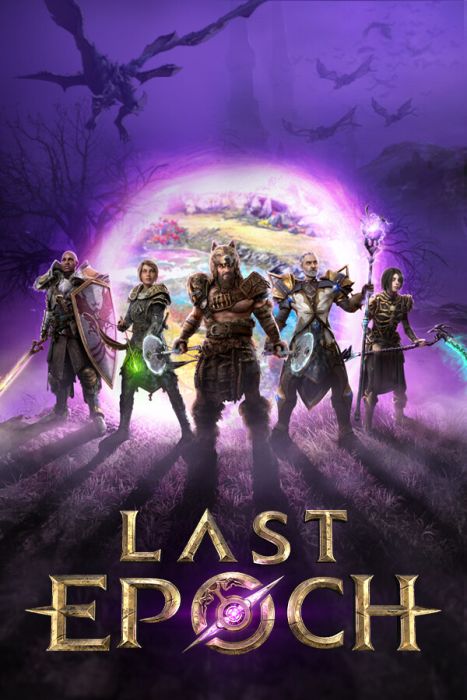



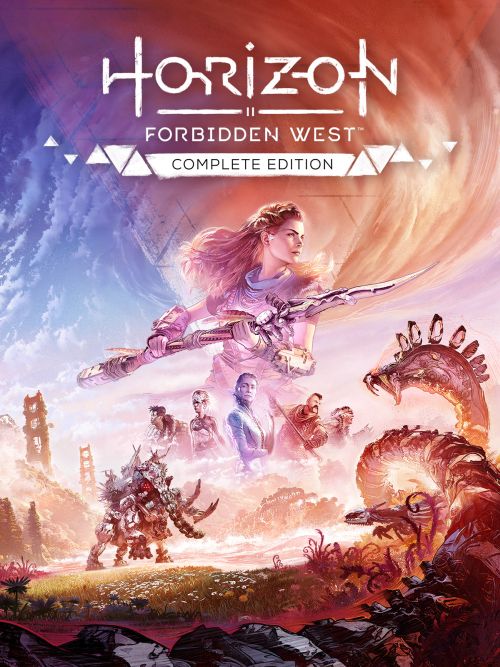




















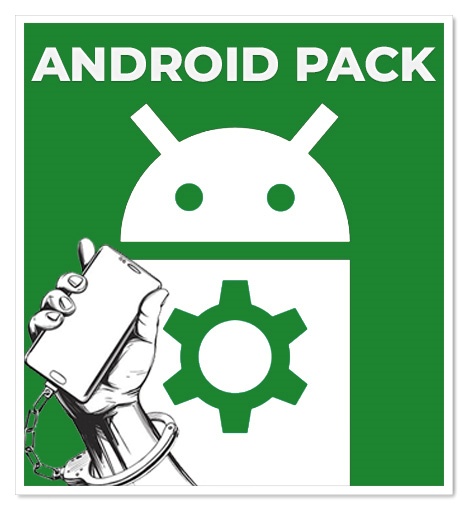

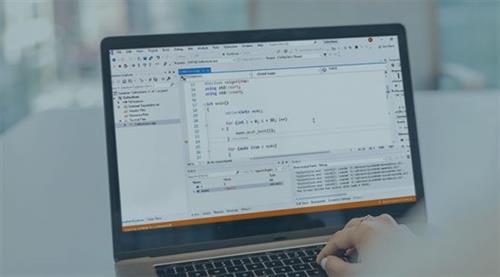
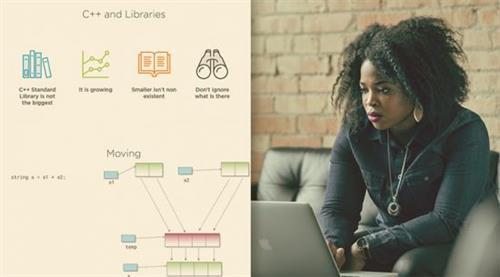
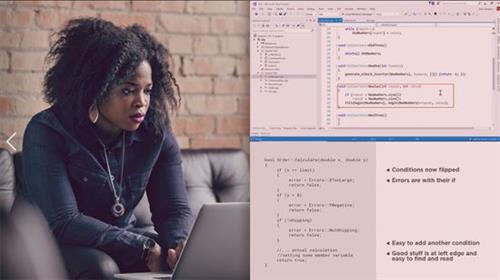

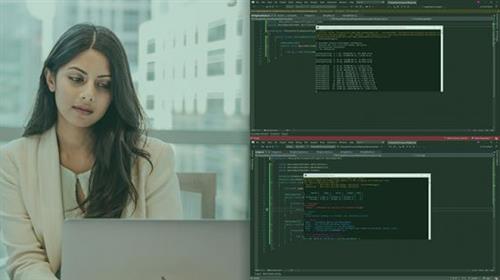
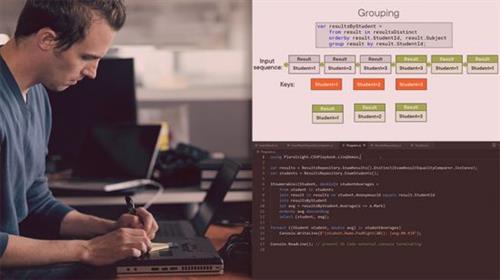
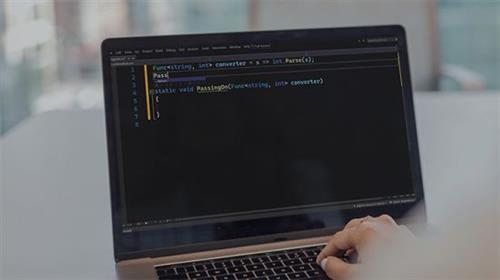
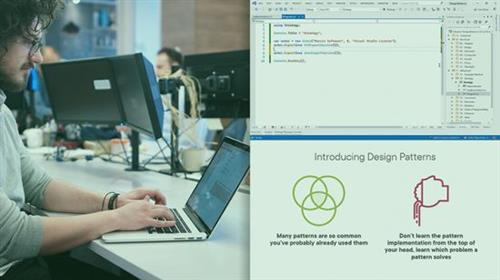







![David Gilmour - Luck and Strange (2024) [FLAC]](https://i.imgur.com/everaBc.jpeg)
![Męskie Granie Orkiestra - Męskie Granie 2024 (2024) [FLAC]](https://i.imgur.com/FAyOxrM.jpeg)
![The Rolling Stones - Hackney Diamonds (2023) [FLAC]](https://i.imgur.com/wCkyyUN.jpg)
![Lady Gaga - Harlequin (2024) [FLAC]](https://i.imgur.com/dcgIA8D.jpeg)
![Natalia Kukulska - Dobrostan (2024) [FLAC]](https://i.imgur.com/bdljG3O.jpeg)
![Kaśka Sochacka - Ta druga (2024) [FLAC]](https://i.imgur.com/hORQKvn.jpeg)
![Kuba Sienkiewicz - Pani Bóg (2024) [FLAC]](https://i.imgur.com/qijCx8Z.jpeg)
![Lanberry - Heca (2024) [FLAC]](https://i.imgur.com/8P7QfeR.jpeg)
![Sara James - PLAYHOUSE (2024) [FLAC]](https://i.imgur.com/m4f8OKg.jpeg)
![Grzegorz Hyży - EPILOG (2024) [FLAC]](https://i.imgur.com/8DA2sBr.jpeg)
![Myslovitz - WIECZORAMI CHŁOPCY WYCHODZĄ NA ULICE (2024) [FLAC]](https://i.imgur.com/l9mMtIG.jpeg)
![Krzysztof Zalewski - ZGŁOWY (2024) [FLAC]](https://i.imgur.com/vh48RAc.jpeg)
![Krzysztof Cugowski - Wiek to tylko liczba (2024) [FLAC]](https://i.imgur.com/SBzgqe2.jpeg)
![Nosowska - Kasia i Błażej (2024) [FLAC]](https://i.imgur.com/mObvVXQ.jpeg)
![sanah - Pianinkowe Kaprysy (2024) [FLAC]](https://i.imgur.com/pVjjPAa.jpeg)
![Kwiat Jabłoni - Pokaz slajdów (2023) [FLAC]](https://i.imgur.com/diERHfZ.jpg)
![Robert Cichy - Spacer po Warszawie (2024) [FLAC]](https://i.imgur.com/ixleU9o.jpeg)
![Viki Gabor - Terminal 3 (2024) [FLAC]](https://i.imgur.com/Q1KCnDs.jpeg)
![Sanah - Kaprysy (2024) [FLAC]](https://i.imgur.com/71OZm4h.jpeg)
![Męskie Granie Orkiestra - Męskie Granie 2023 (2023) [FLAC]](https://i.imgur.com/U4YHo8d.jpg)




